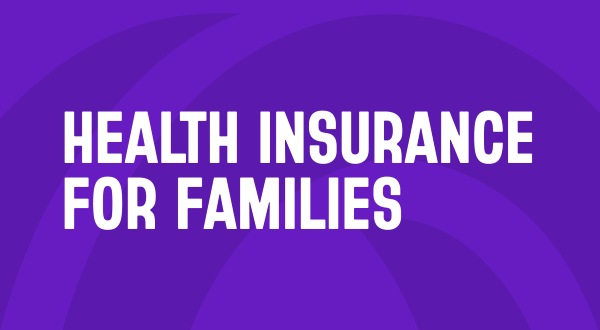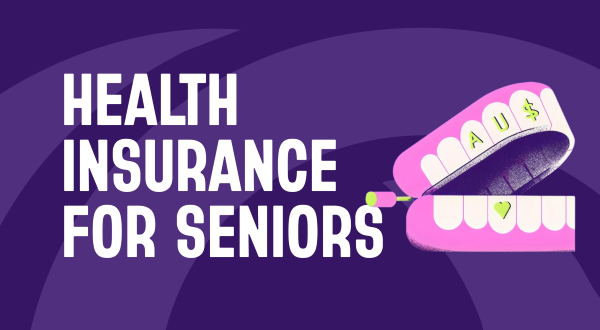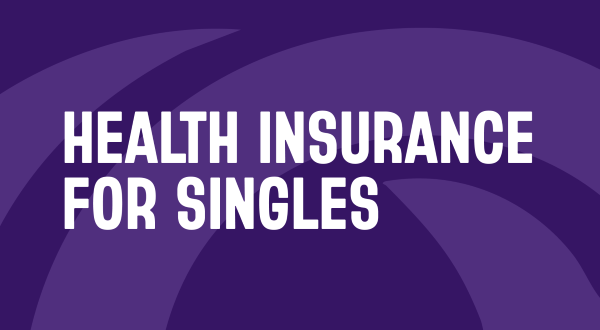COMPARE HEALTH INSURANCE

Excellent
Based on 7517 reviews on
Lowest Price Guarantee
Our promise? Our Lowest Price Guarantee means that even if you could find the identical policy for cheaper elsewhere, we'll give you one month's premium free
Our private health insurance partners
We work with a wide range of leading health insurance providers. Unfortunately not every fund chooses to be listed, but we'll still help you find the best value from those who are.
What are the benefits of private health cover?
* Subject to income test and appropriate cover being held
** Payable when health cover is eventually purchased. LHC loading is added to the hospital cover premium.
Gold, Silver, Bronze? Which hospital tier is right for you?
Talk to one of our experts (they live in Melbourne, Sydney and Brisbane) to understand more about what's included in this part of your cover.
Hospital cover: for surgeries, overnight stays and spending less time in pain.
Extra cover: for your teeth, eyes, back, and all those other bits Medicare ignores.
Or go full adult and get both.
Minimal cover for hospital
Depending on your visa & situation, policies may include hospital, dental, GP & ambulance cover
Getting health insurance for the first time
Being smart when selecting health cover means you get more than just a tax saving. From free dental check-ups to peace of mind you're covered for common hospital procedures, you can balance what you need against your budget.
- First-Time Buyers
- Switching Plans
Our experts can help make your journey into Australia as easy as possible by helping you get overseas visitors health cover before you've arrived.
We can even help you receive your certificate of insurance online and our OVHC policies meet visa condition 8501.
Excellent
Based on 7517 reviews on
Compare Club recommended an alternative…
Compare Club recommended an alternative Health Insurance provider which provided wider extras coverage and amount for the same price compared to existing Health Insurance provider
Derk Maatman
Millie was outstanding
Millie was outstanding. Comparing health insurance and figuring out what cover is best suited is so overwhelming. She made it easy to understand and on top of that I felt that she truly had my best interest at heart. Would recommend her to all my family and friends. Thanks again Millie.
Lynette Combrinck
Health Insurance-I was so confused about health…
I was so confused about health insurance but Karan went through every detail with me and made sure we had coverage for the items we need, making it all very clear and I changed my insurer and saved nearly $500 py Very happy 😊
Gary Hildebrand
Today I spoke with Arianne - Best Customer Service received in a very long time
Today I spoke with Arianne, who was absolutely delightful. She went above and beyond to ensure I received the best possible Health Cover for my needs, nothing seemed to be too much trouble and even though it took a while to find the right cover for me, she never gave up and was kind and helpful the whole way through. You could actually hear the passion she has for her job and for providing the best customer care to her clients. Thankyou Arianne in a world where most don't care you were a breath of fresh air. Thankyou
Sina
Health cover Advisor
Health cover Advisor George Deng found the best policy that suited my needs & switching policies have saved me alot of money. Highly recommend him very professional & easy to talk too.
Jenny V
All plaudits to Enrique Jose for the…
All plaudits to Enrique Jose for the service and excellent explanation he provided today.As a consequence we have changed health funds. Keep up the good work. Thank you. John & Crista
John Wait
Quick & Easy Change of Health Insurance!
Compare Club contacted me today in reference to an online Health Insurance survey I recently filled out: Alicia of Compare Club was Beyond Brilliant! She compared Insurers for me, got me far better, more reasonably priced coverage, ensured I now have more & better Extras Cover with BUPA than I ever did with my previous Insurer (AHM) & easily transferred me to my new Health Insurer, all in record time (but without rushing me). Not only that, Alicia Tailored my new coverage Specifically, to my exact Medical & Health needs - again, all for a better Fortnightly/Monthly Premium! Alicia also simplified all of the complex details in clear language ensuring that the whole process was not only quick, but pain-free & even enjoyable! Would recommend them to absolutely anyone: Thanks, Alicia & thanks, Compare Club!
Florence Pierce
Private health
The consultant compared my health fund cover and how much I use it to see if there was any better options. The only better option to match with my usage is with my health fund at a lower level of extras, but they still walked me through the steps of how to change it, despite the fact that what they usually do is get people a better rate by changing providers.
Klaudia Dunk

Learn more about health insurance
Ambulance Cover: Ambulance cover refers to the insurance coverage for emergency ambulance services. In Australia, ambulance services are generally not covered by Medicare (the public healthcare system) and can result in significant out-of-pocket expenses. Having ambulance cover through private health insurance helps protect individuals from the high costs associated with emergency ambulance transport.
It's important to note that ambulance cover requirements and regulations vary between Australian states and territories. Some states provide free or subsidized ambulance services to their residents, while others require individuals to have their own ambulance cover. It's crucial to check the specific requirements and regulations in your state or territory and ensure that you have adequate ambulance cover in place to avoid potential financial burden during emergency situations.
Extras Cover: Additional health insurance coverage that provides benefits for services not typically covered by Medicare, such as dental care, optical services, physiotherapy, and chiropractic treatments. Here are some examples of extras that are commonly covered under private health insurance policies in Australia:
- Dental Extras: Coverage for routine dental treatments, such as check-ups, teeth cleanings, fillings, extractions, and major dental procedures like crowns, bridges, and dentures.
- Optical Extras: Coverage for optical services and products, including prescription glasses, contact lenses, and prescription sunglasses.
- Physiotherapy: Coverage for physiotherapy sessions, which involve rehabilitative exercises, manual therapy, and other treatments for musculoskeletal conditions and injuries.
- Chiropractic Services: Coverage for chiropractic treatments, which focus on diagnosing and treating musculoskeletal disorders, particularly related to the spine.
- Remedial Massage: Coverage for therapeutic massage treatments aimed at relieving muscle tension, improving circulation, and reducing pain and discomfort.
- Occupational Therapy: Coverage for occupational therapy services, which help individuals improve their ability to perform daily activities and tasks related to work, rehabilitation, or disability management.
- Psychology/Counselling: Coverage for psychology or counselling sessions to address mental health concerns, such as anxiety, depression, and stress management.
- Naturopathy/Homeopathy: Coverage for consultations and treatments provided by naturopaths or homeopaths, who use natural remedies and therapies to support overall health and well-being.
- Podiatry: Coverage for podiatry services, including assessments, treatments, and care for foot-related conditions, such as foot pain, injuries, and diabetic foot care.
- Hearing Aids: Coverage for hearing aids and related services, including assessments, fittings, and ongoing support for individuals with hearing impairments.
Gap Cover: An arrangement where private health insurers may provide additional benefits to cover or reduce the out-of-pocket expenses (known as the "gap") incurred by policyholders for in-hospital medical services not fully covered by Medicare.
General Dental: General Dental refers to routine dental treatments and preventive care aimed at maintaining oral health. These can include services such as check-ups, teeth cleanings, X-rays, fillings, and basic extractions. General Dental coverage is a common component of extras cover provided by private health insurance policies in Australia. It helps individuals offset the costs of routine dental visits and basic treatments. The level of coverage for General Dental can vary depending on the insurance policy and the specific extras cover chosen by the individual.
Hospital Cover Tiers: Hospital cover in Australia is categorized into tiers, which represent different levels of coverage and benefits. These tiers were introduced to simplify and standardize private health insurance policies. The tiers are as follows:
- a) Gold: Gold is the highest level of hospital cover and provides the widest range of coverage for hospital treatments. It typically includes coverage for all clinical categories and treatments in both public and private hospitals.
- b) Silver: Silver tier hospital cover offers a comprehensive level of coverage, including a wide range of treatments across different clinical categories. However, it may have some exclusions or restrictions compared to Gold tier cover.
- c) Bronze: Bronze tier hospital cover provides a medium level of coverage for common treatments and clinical categories. It generally excludes or has limited coverage for higher-cost or specialized treatments.
- d) Basic: Basic tier hospital cover offers a limited level of coverage and typically covers a narrower range of treatments. It is designed to provide essential coverage for key clinical categories, but may have exclusions or restrictions for certain treatments.
Hospital Cover: Hospital cover refers to the component of private health insurance that provides coverage for hospital treatments and services. Hospital cover allows individuals to have greater control over their healthcare options by providing access to private hospitals, choice of doctor, shorter waiting times, and accommodation in a private room (depending on the level of cover). Hospital cover typically includes benefits for in-hospital medical procedures, surgeries, accommodation, and related services, such as anesthesia and operating theatre fees.
Lifetime Health Cover (LHC): A loading or penalty applied to the premium of private health insurance policies if an individual takes out cover after the age of 30. It incentivizes individuals to maintain continuous private health insurance coverage.
Major Dental: Major Dental refers to a category of dental treatments that typically involve more extensive procedures and higher costs. These can include treatments such as crowns, bridges, dentures, orthodontics (braces), and oral surgery. Major Dental coverage is a type of extras cover offered by private health insurance policies in Australia. It provides benefits or a percentage of the cost for major dental treatments, helping individuals manage the financial burden associated with these procedures. The specific coverage and limits for Major Dental can vary depending on the insurance policy and level of extras cover chosen by the individual.
Medicare Levy Surcharge (MLS): An additional tax imposed on high-income earners who do not have private health insurance and earn above a certain threshold. It encourages individuals to take out private health insurance and reduce the burden on the public healthcare system.
Medicare: Australia's publicly funded healthcare system that provides basic medical services and subsidized treatments to Australian residents.
Network: A group of doctors, hospitals, and other healthcare providers that have contracted with an insurance company to provide services
No-Gap: No-Gap refers to a situation where a policyholder does not have to pay any out-of-pocket expenses or the "gap" for certain medical services or treatments. It typically applies to in-hospital services where the medical practitioner agrees to charge an agreed fee and Medicare and health insurance covers the full No-Gap arrangements can help individuals minimise their expenses for specific procedures or treatments.
Orthodontics: Orthodontics is a branch of dentistry that focuses on correcting misaligned teeth and jaw irregularities. It involves the use of braces, retainers, aligners, and other dental appliances to straighten teeth and improve bite alignment. Orthodontic treatment is typically considered a major dental procedure. Private health insurance policies in Australia may offer coverage for orthodontic treatment under extras cover, specifically under the Major Dental category. It's important to review the specific policy details and waiting periods associated with orthodontic coverage, as there may be limitations and conditions for reimbursement.
OSHC (Overseas Student Health Cover): OSHC is a specific type of health insurance designed for international students studying in Australia. It is a requirement for most student visa subclasses to ensure that students have access to necessary healthcare services during their studies in Australia.
OSHC provides coverage for essential medical treatments, hospital stays, prescription medications, and emergency services. It helps international students manage the costs associated with healthcare while studying in Australia and ensures they have access to necessary medical care.
Out-of-Pocket Expenses: Out-of-pocket expenses refer to the costs that individuals are responsible for paying directly when receiving healthcare services, even if they have health insurance coverage. These expenses can include deductibles, co-payments, and coinsurance, as well as any costs not covered by insurance. Out-of-pocket expenses can vary depending on the type of service, the insurance plan, and any applicable limits or exclusions.
OVHC (Overseas Visitor Health Cover): OVHC refers to health insurance specifically designed for visitors to Australia, including temporary residents, such as international students, working holiday visa holders, and temporary skilled workers. OVHC is a requirement for most visa subclasses to ensure that visitors have access to necessary healthcare services while in Australia.
OVHC provides coverage for essential medical treatments, hospital stays, and emergency services during the visitor's stay in Australia. It helps protect visitors from the high costs of medical care and ensures they have access to necessary healthcare services during their time in the country.
PBS (Pharmaceutical Benefits Scheme): The Pharmaceutical Benefits Scheme is a program by the Australian Government that subsidizes the cost of a wide range of prescription medications, making them more affordable for Australian residents. Under the PBS, eligible individuals pay a reduced price (known as the patient co-payment) for prescribed medications, while the government covers the remaining cost. The PBS ensures access to essential medications at affordable prices for the Australian population.
Pre-existing Condition: A medical condition that existed before an individual took out health insurance or upgraded their cover. Waiting periods may apply before coverage is provided for treatment related to pre-existing conditions.
Preferred Provider: Healthcare providers, such as doctors or specialists, who have an agreement with an insurance company to provide services at agreed-upon fees. Policyholders may receive higher benefits or reduced out-of-pocket expenses when using preferred providers.
Premium: The amount of money paid to the insurance company at regular intervals (monthly, quarterly, annually) to maintain health insurance coverage.
Private Health Insurance Rebate: A government subsidy provided to eligible individuals to help offset the cost of private health insurance premiums. The rebate amount is based on income and age.
Waiting Period: The specified period an individual must wait after taking out private health insurance or upgrading their cover before they can claim benefits for certain treatments or services. Waiting periods vary depending on the treatment or service.
For a quick and easy comparison, speak to a health insurance adviser over the phone to receive free quotes tailored to your preferences and budget. It may also be helpful to speak with family and friends who have been customers of various health funds in the past.
But before you get started, you should have a clear idea of what kind of policy you are looking for. Factors to consider include:
Decide if you want Hospital cover, Extras cover or Ambulance cover, or a combination of these cover types
- How much you can afford and are willing to pay each month for your health insurance
- What sort of health care treatments and services you want cover for
Who you want to cover. Are you interested in a single, family or couples policy
- What level of cover do you think you'll require (e.g. do you just want the basics covered, or are you after a comprehensive gold-tiered health insurance policy?)
- Any health concerns you want a policy to specifically cater to
- What is important to you in a health fund (e.g. is it reputation? Customer service? Percentage of claims paid out?)
From here, you can do the relevant research that allows you to ultimately choose the best private health insurance for you.
Generally, the best health insurance policy for you will be the one that:
Is comfortable within your budget
Provides the type of cover you want
Provides the level of cover you want
Is set up with a company you trust
Is transparent about its conditions
Is customisable to your needs
Once you know what you are looking for, undertaking a private health insurance comparison can help you identify how each fund competes in premiums, coverage conditions and other factors that are important to you.
Compare Club can help you compare health insurance policies from eight different health funds, including some of Australia's leading health insurers like Bupa, AHM and HCF.
It may be useful to investigate the Australian Medical Association's annual Health Insurance Report Card. It aims to shed light on how health insurance really works and provide consumers with clear, concise information regarding different health funds.
Keep in mind, however, that the results of each fund can change drastically year upon year. Before committing to a policy, you should always look at a wide range of factors, conduct a review with the help of our team of industry experts and read the policy documentation from the health fund you are interested in.
The main difference is that Medicare only covers hospital treatment as a public patient in a public hospital and a set range of non-hospital services such as GP visits and eye check-ups.
Private health insurance offers benefits beyond the public health system. Ambulance journeys and some out-of-hospital costs such as dental check-ups and glasses are not covered by Medicare.
In addition, appropriate private health cover allows you to choose your own doctor, be treated as a private patient in a public hospital (with access to improved facilities like a private room, subject to availability), cover gap fees and bypass long public hospital elective surgery waiting lists by choosing to have your treatment in a private hospital.
There are multiple government incentives for people to buy private health insurance, such as avoiding the Medicare Levy surcharge.
How much you pay for private health insurance depends on what level of cover you want and which provider you choose. On average, health insurance policies cost between $2000 to $3000 per year depending on whether you have hospital cover, extras cover, or a mixture of hospital and extras cover (combined policy).
It doesn’t cost anything to compare health insurance and switch to a better policy, so there’s no downside to choosing something better. For example, if you feel you’re paying too much in private health insurance premiums, you can shop around for a cheaper policy that still covers the things that are important to you.
Compare Club makes it easy to compare health insurance and choose a better policy. Our specialists will help you compare policies from our panel of trusted private health insurers so you can make the right switch.
Just because you are already signed up with a health insurance provider does not mean you are locked in forever. If you find a better alternative, you will not be penalised for shopping around.
You can do your own health insurance comparison and switch at any time without incurring additional charges.
Even better, if you have already paid some health insurance premiums in advance and you decide to switch, your insurer will calculate the difference and refund the remaining balance, usually in full.
Just remember that your unserved waiting periods will transfer to your new provider. So if you end up switching health insurance to an equivalent cover, you may need to finish these waiting periods before making a claim.
Think you could get a better deal? Switching health insurance does not need to be a hassle. Let us help you through the process of changing providers.
Identify which funds have the features you want, and shop around for value. It sounds simple, but health insurance can be confusing. Start by reading our guide on how to compare and select the right policy.
It is worth taking time to note down what health services you and your partner or family need today and in the future.
Doing this will make it easier to decide what level of hospital cover you need; Gold, Silver, Bronze or Basic. Look for the health fund package that includes everything you need without including many items you will likely never use.
Then go through the same exercise for your extras. Do you wear glasses? How much are you currently paying for a dental check-up? Are you likely to need physio in the future?
There are other things to consider when choosing a health fund. How long will you have to wait before you can access treatment? What rebates can I get? Are there any limits to what I can claim on my extras? Will I get hit by gap fees?
As you can tell, trying to compare health insurance can be a time consuming and confusing process. That is why our specialists can compare policies from our panel of insurers in a matter of minutes and quickly help you find the cover you need at a price you can afford. If you’re looking for a quick and easy health insurance comparison, Compare Club has you covered.
Switching to another private health insurer is easier than you might think. All you need to do is contact the private health fund that offers the new policy you want to switch to. When you decide to make the switch, your former health fund will generate a clearance certificate for your new health fund.
Alternatively, you could leave all the hard work to the experts at Compare Club. Just provide us with some basic information about your personal circumstances (single, couple, family etc.) and what type of cover you’re looking for, and we’ll take care of the rest. Our specialists will provide you with the best possible policy options from a range of private health funds, leaving the final decision to you.
Learn more about how to switch your health insurance.
It can be hard to compare health insurance in Australia due to how many competitive options there are. Many policies, on the surface, are very similar, and unless you’re pretty familiar with the industry, figuring out the best policy for you can be difficult.
Think about what’s most important for you with a new health insurance policy and see how different private health funds stack up in those areas. If it all gets a bit much, don’t worry, you can use Compare Club to get a quick comparison from our health insurance experts. We’ll help you find private health insurance that covers what you need at a price you can afford.
Having appropriate private health insurance from an early age means you can avoid the Medicare Levy Surcharge (MLS), avoid Lifetime Health Cover loading and likely get the Australian government health insurance rebate.
If you earn over $93,000 as an individual or $186,000 as a family, you need to take out private health insurance to avoid being hit by the Medicare Levy Surcharge. This can be up to 1.5% of your income, depending on how much you earn.
Lifetime health cover loading, meanwhile, affects people who do not take out private hospital insurance before they are 31. If you decide to take our cover at a later age, you will pay a loading fee.
This is 2% for each year you did not hold cover from the 1st of July following your 31st birthday. So, if you are 35 when you decide to take out private health cover, you will pay a 10% loading fee. LHC is capped at 70%.
The private health insurance rebate is money the government contributes towards paying your private health insurance premiums. Your age and income determine the exact rebate you get.
You can claim the rebate through your health fund or apply it when you lodge your yearly tax return. Learn more about how the private health insurance rebate works in Australia.
If you have pre-existing conditions, you may not get immediate cover for what you want and will have to serve a waiting period before you can claim. If you are switching your health insurance policy to one with an equal or lesser level of cover, you will not need to re-serve waiting periods.
Learn more about pre-existing conditions and health insurance.
Got more questions?
We have answers to all the most commonly-asked health insurance queries - because it’s our job to know, and to help you know too. Check out our in-depth articles and guides below.



As our customer you'll be provided with quotes directly from the insurer for the product you intend to purchase. We manage the application and deal with the administration work and insurer. We do not charge you a fee for the service we provide, the insurer simply remunerates us in return for setting up your policy.
The financial and insurance products compared on this website do not necessarily compare all features that may be relevant to you. Comparisons are made on the basis of price only and different products may have different features and different levels of coverage. Compare Club does not compare all policies available in Australia and our partner insurers may not make all policies available to Compare Club.


